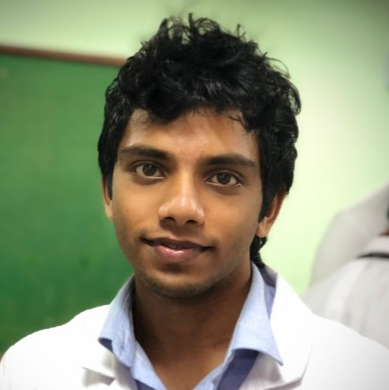W. Alton Russell, PhD
Assistant Professor

- alton.russell@mcgill.ca
- twitter.com/altonrus
- 2001 McGill College Avenue, Montreal, QC H3A 1G1
- Our lab sits within the McGill Clinical and Health Informatics Research Group on the 11th floor of 2001 McGill College Avenue. Visitors must arrange for someone to let them into the lab or visit to the reception area at the 12th floor.
Alton joined the McGill School of Population and Global Health as an Assistant Professor in 2022. As a researcher, Alton has developed decision analytic models and data-driven analyses for multiple areas of health policy and clinical practice, including blood donation and transfusion, managing pediatric kidney disease, opioid use disorder and overdose, and gastroenterology. Alton is also:
- Associated investigator, Research Institute of the McGill University Health Centre (RI-MUHC)
- Researcher, McGill Quantitative Life Sciences program
- Scientific advisor, COVID-19 Immunity Task Force
- Member, Group for Research in Decision Analysis (GERAD)
You can view his CV here.
- Data-driven decision analysis
- Health policy modeling
- Health technology assessment
-
Postdoc, Mass General Hospital Institute for Technology Assessment, 2021
Harvard Medical School
-
PhD, Management Science and Engineering, 2021
Stanford University
-
MSc, Management Science and Engineering, 2018
Stanford University
-
BSc, Industrial Engineering (Health Systems Engineering concentration), 2014
North Carolina State University
-
BSc, Interdisciplinary Studies (Global Health and Sustainability concentration), 2014
North Carolina State University
D3Mod Lab
The Data-Driven Decision Modeling Lab–or D3Mod Lab–aims to enable the efficient, effective, and equitable use of finite healthcare resources. We use do so by developing, assessing, and applying traditional decision modeling methods (mathematical modeling, simulation, optimization) together with data-driven methods (machine learning, Bayesian statistics). Our work informs challenging decisions in health policy and medicine. We are part of the McGill Clinical and Health Informatics Research Group and the McGill School of Population and Global Health in Montreal, Quebec, Canada.
Lab members

Yuan
Yu
Postdoc
Small area estimation, Bayesian hierarchical modeling, Sampling methods,
survey studies, Bayesian applications, statistical and machine learning

Wanjin (Jennifer)
Li
PhD student
Health technology assessment, Economic evaluation, Public health data
science

Melina Thibault
PhD student
Health informatics/digital health, Health policy modeling, Non-communicable
disease epidemiology

Nkasiobi Hossanna Nwobi
MSc student
Health policy modeling,
Health surveillance,
Impact evaluation

Ethan McNally
BA student
Health economic policy evaluation, Decision Modelling

Rosa Maria Oscanoa
PhD student
Health decision modeling, Cancer epidemiology, Health informatics

Supun Manathunga
PhD student
Machine learning methods in infectious disease epidemiology, Bayesian methods
Teaching
Alton teaches the following courses at McGill:
Research
The D3Mod lab’s research informs health policy and clinical decisions through data-driven modeling and analysis. We use methods from decision science, optimization, epidemiology, health economics, and machine learning to enable the efficient, effective, and equitable utilization of resources. We collaborate with stakeholders in medicine and health policy to maximize our impact on policy and practice while extending the state of the art in data-driven decision modeling.
A major area of focus is data-driven decision analytic modeling, which integrates individual-level data into models that compare health intervention or policy options. Traditionally, decision analyses either model an ‘average’ patient or a relatively homogeneous cohort of synthetic individuals, extracting values from the literature or expert opinion to characterize the impacted population and estimate the impact of policy alternatives. This assumes risks and costs are not distributed across the population and interventions' treatment effects are homogeneous. Our lab is developing methdos to directly integrate individual-level data to reflect the true heterogeneity in patient populations and capture differences in expected outcomes under different policy alternatives. This enables more accurate estimation of the trade-offs involved with an intervention and allows us to look at the distributional impact of interventions to reveal potential inequities.
Current projects
Current research themes include:
-
Enabling individualized approaches to managing risks of iron deficiency for blood donors using machine learning and decision-analytic simulation modeling
-
Using simulation modeling to optimize the use of predictive models to prevent service gaps in emergency medical services (paramedics and ambulances)
-
Advancing the state-of-the-art in integrating data-driven methods (machine learning, Bayesian statistics) into decision-analytic models
-
Developing and assessing methods for population health surveillance, including adjusting for assay and population differences to allow harmonization of data across cohortss
-
Model-based economic assessments of health interventions, including cancer screening and surveillance.
Prospective lab members
Affiliated degree programs: I can serve as the thesis supervisor for students in Epidemiology (MSc and PhD), Biostatistics (MSc and PhD), Quantitative Life Sciences (PhD), and Experimental Medicine (MSc and PhD), which includes the MSc in Digital Health Innovation. For students in other degree programs, I may be able to serve as a practicum supervisor, co-supervisor, or committee member.
Current McGill students: If you are interested in working with the lab, please email me (Alton) your CV and a brief note about your interests.
Prospective McGill students: For prospective PhD students please send me (Alton) your CV, your intended degree program, and a brief note about your interests, ideally two to three months before the application deadline. Feel free to reach out earlier if you would like to discuss applying for a specific fellowship or scholarship that is due before the PhD program application. For prospective or admitted MSc students you are welcome to send your CV and a note about your interests. I typically meet with new MSc thesis students in their first semester and have them join the lab in the beginning of their second semester. In some cases, I am able to discuss potential projects and fellowship or studentship opportunities earlier. Applying for graduate funding (fellowships, studentships) cab increase the likelihood of admission to a graduate program and being able to complete your thesis with the D3Mod lab.
Prospective postdoctoral researchers or research staff: Any open research staff opportunities will be advertised on McGill’s Workday platform. Prospective postdoctoral researchers may reach out at any time. Prospective postdoctoral researchers who have external fellowship funding or are willing to apply for funding are more likely to receive a position.
Open science research philospohy
Our group works hard to produce research that is informative, rigorous, transparent, and reproducible. The Decision Modeling Lab Manual describes our approach to open research and dissemination.
Thank you to our funders
Research in the decision modeling lab is supported by grants from:
Major publications
Former Members

Jia Cheng Chen
Research Associate
Next position: postdoc, UdeM







